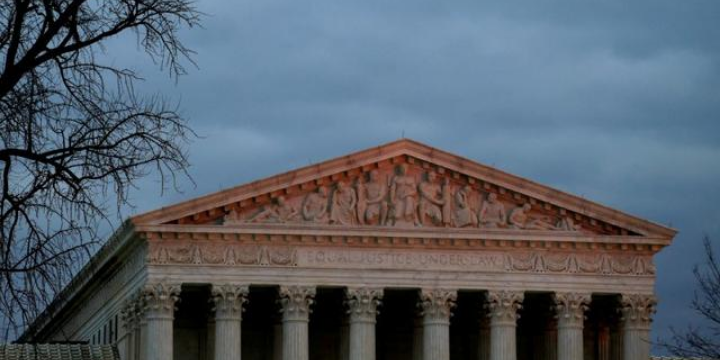U.S. Supreme Court refuses to ‘Free the Nipple’ in topless women case
The Supreme Court on Monday decided not to “Free the Nipple,” refusing to hear an appeal by three women fined by a city in New Hampshire for exposing their breasts in public who argued that banning female but not male toplessness violates the U.S. Constitution.

The Supreme Court on Monday decided not to “Free the Nipple,” refusing to hear an appeal by three women fined by a city in New Hampshire for exposing their breasts in public who argued that banning female but not male toplessness violates the U.S. Constitution.
The justices left in place a 2019 ruling by New Hampshire’s top court upholding the women’s convictions for violating an ordinance in the city of Laconia that makes it illegal to show female breasts in public “with less than a fully opaque covering of any part of the nipple.”
The women – Heidi Lilley, Kia Sinclair and Ginger Pierro – were involved in the “Free the Nipple” movement, which court papers described as campaigns against “sexualized objectification of women” and in favor of women being able to go topless in public if they wish.
Pierro was arrested on a beach on the shores of Lake Winnipesaukee in May 2016 where she was performing yoga while topless. Lilley and Sinclair were both arrested days later while topless on another beach where they were protesting Pierro’s arrest.
The three women were given suspended fines of $100 each, on condition of subsequent good behavior.
Among the legal arguments made by the women is that any law that punishes women for exposing their breasts while allowing men to go shirtless violates the Constitution’s 14th Amendment, which requires that laws be applied equally to everyone.
The New Hampshire Supreme Court ruled that the ordinance did not discriminate against women, noting that it bars nudity of both men and women. The different definition of what constitutes nudity is based on “the traditional understanding of what constitutes nudity,” that court concluded.
Laconia is located about 25 miles (40 km) north of Concord, the capital of New Hampshire.
Reporting by Lawrence Hurley; Editing by Will Dunham
Source:reuters.com


